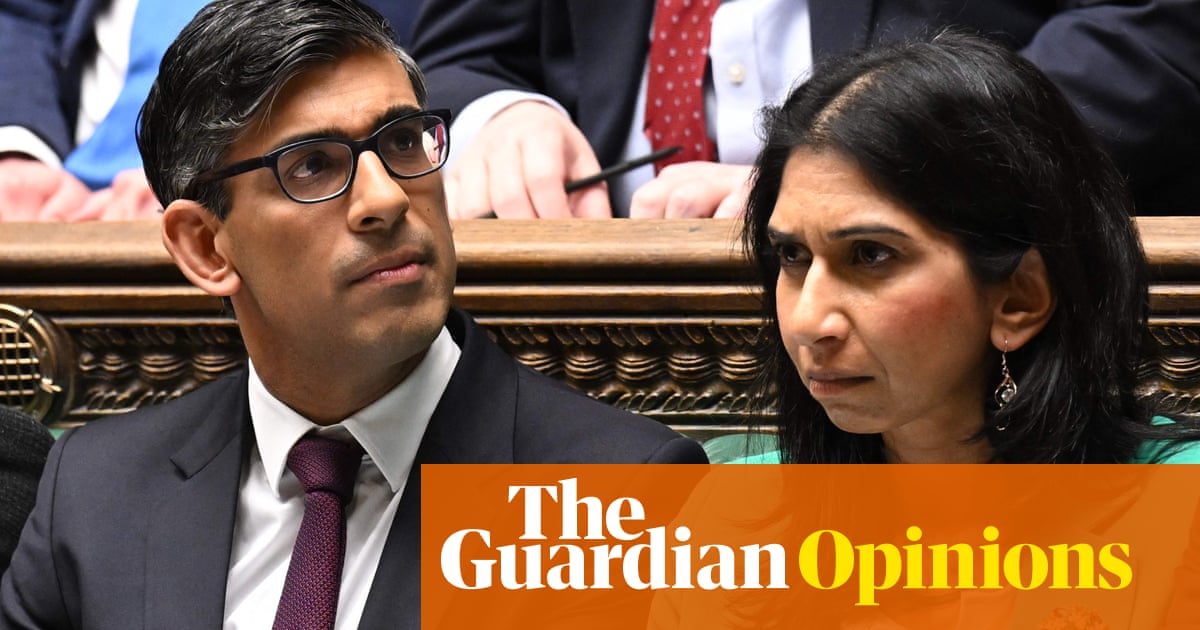
Rishi Sunak has defended his spring statement from accusations that it failed to do enough to help the poorest in Britain with soaring living costs by arguing that extra help could have put government finances at risk.
In a fractious exchange with MPs on the House of Commons Treasury committee, the chancellor said he had been forced to make choices over where to prioritise support because of rising government borrowing costs as the British economy is buffeted by surging inflation made worse by Russia’s war in Ukraine.
“One may say, if they don’t like my choices, they’d be happy to borrow a lot more. That’s just not something I think is responsible or sensible,” he said.
The chancellor was attacked for being a “fiscal illusionist” for pledging some tax cuts while driving up the overall tax burden and not helping the poorest in society. The Labour MP Siobhain McDonagh asked: “Why did you prioritise your ambition to have a reputation as a tax-cutter over helping people really worried about heating their homes or feeding their kids?”
Sunak said it was not possible to fully insulate every household in Britain from high levels of inflation and insisted that his spring statement and earlier £9bn energy support package were “progressive”, with measures to help the poorest in society.
The chancellor has faced heavy criticism for not increasing the value of universal credit benefits by more than the planned 3.1% rate from April, despite forecasts for inflation to rise to 8% in the same month. However, he said there were sufficient alternative measures in place – including hardship funding available through local councils and support to help unemployed people into work.
“I appreciate people may have wanted to do more on welfare, less to cut tax to people in work. Other people may have chosen to borrow lots more, [but] those are not the choices I’d be comfortable with,” he said.
Faced with angry questions from Labour MPs on the committee, Sunak admitted he would not be a “tax-cutting chancellor” despite his plans to increase the threshold for national insurance contributions and a promise to cut income tax in future.
Having been heavily criticised as out of touch after being pictured filling up a car with petrol that was not his own after his spring statement, the chancellor admitted that he drove a Volkswagen Golf, rather than the Kia Rio, which belonged to a Sainsbury’s employee and was borrowed for the photo shoot.
McDonagh suggested to Sunak that he was assuming voters were stupid if he did not realise that they would see the 2024 tax cut as a transparent election ploy. However, the chancellor said he wanted to give people a sense of the “direction of travel” to cut taxes in future.
Sunak argued that interest rates on UK government debt or inflation rising by more than expected would be costly for the public purse, as it would force the country to pay more on debt servicing costs. He said Britain was already forecast to borrow 60% more than the average since the second world war in the coming year.
“[Higher borrowing] has the risk of stoking inflationary pressure, and I don’t think it’s the right long-term thing to do for the country. I think we need to be responsible with borrowing, I think we need to be getting debt down and borrowing under control. That provides for me a constraint as to what is possible, and then there’s a choice about where to target that support.”
Despite his warnings over the heightened risks to the public finances, Sunak has faced heavy criticism for committing to cut the basic rate of income tax from 20% to 19% in two years’ time at a cost of £6bn to the exchequer – a development with consequences for the amount of wriggle room the chancellor has left in the government finances.
Forecasts from the Office for Budget Responsibility show the chancellor has about £30bn of headroom left within self-imposed targets for the public finances after his spring statement measures. It said last week the government has as much as a 66% chance of meeting the target, based on historical evidence.
Earlier, the head of the OBR, Richard Hughes, told MPs the chancellor’s reliance on rebates through the tax system limited the effect of support to the poorest in society.
Hughes said: “The chancellor has used a combination of the council tax systems, supporting energy bills and the tax system to deliver support and relief for people facing this cost-of-living squeeze, rather than the benefits system.
“One of the limitations of that is that you are limited by how many people you can reach through the tax system.
“If people aren’t in work, or working the number of hours they need to get them beyond the personal allowances and thresholds, they are more difficult to reach through the tax system than they would be through something like universal credit, which reaches people lower down the income scale.”












